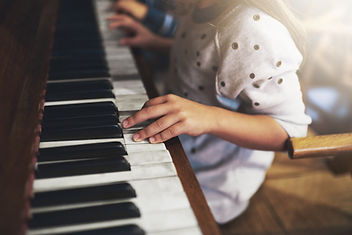

Paula Skutnick

Testimonials
Piano & Music Theory

Paula has been teaching piano since 1976 throughout the Delaware Valley. All ages; all levels. All styles of music including: Classical, Ragtime, Blues, Jazz, Folk/Latin/ethnic, Broadway/standards
Music education helps to stimulate and develop areas of the brain involved in language, reasoning, creativity, memory, and more. Recent studies have shown that students who study music achieved more in school and even scored higher on standardized tests. It's also good for one's health- playing music has been shown to reduce stress & anxiety, and lower blood pressure.
Music performance can teach students to conquer fear and take risks. Practice teaches discipline, patience, and the value of sustained effort. Music helps to develop social skills and builds confidence in self-expression through its incredible ability to connect people and enhance our quality of life.

Composition
Studying composition teaches about how music works. It allows the student to listen more critically, and to understand the styles and structures of each genre on a deeper level. Studying and composing different types of music exposes the student to a vast library of styles and composers and create appreciation for a diverse variety of music. Composition study can improve critical reasoning skills, as well problem solving and even mathematics and history. Similarly to performance, completing a creative work in full and submitting it for peer review, competition, or performance can boost confidence in self-expression and creativity.
Pedagogy
Piano Pedagogy is the study of the teaching of piano playing. It expands the resources and skills of piano players who wish to become teachers. Pedagogy develops a deep understanding of the fundamentals of piano, as well as social skills needed to connect with students of all ages and levels. Topics covered include lesson planning & structure, choosing repertoire, fun approaches to keep kids interested, and how to encourage development in music.